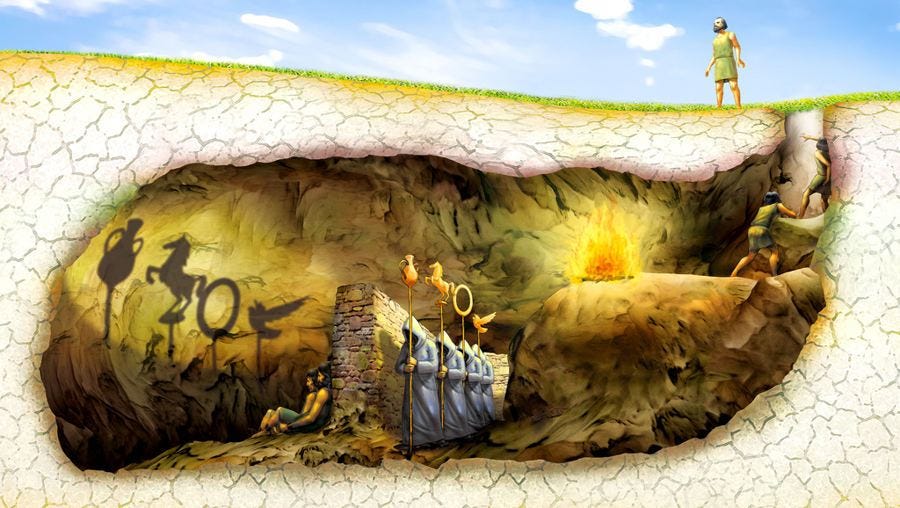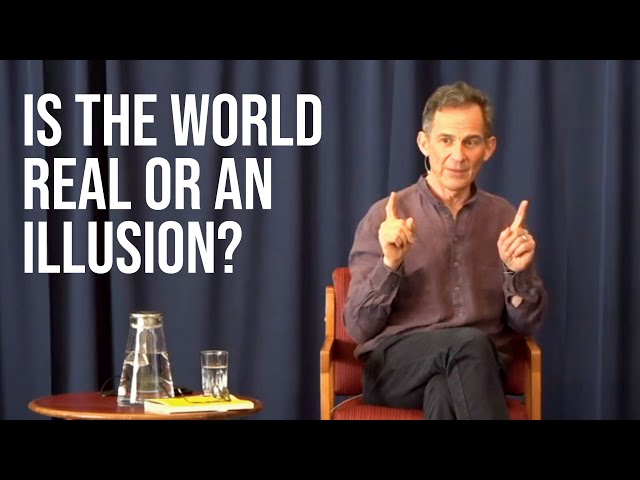Is The World Real Or An Illusion
The world we live in is complex and mysterious, leaving us to wonder if it is real or an illusion. Philosophers have long debated this question, with some claiming that the world is an illusion created by our minds, while others argue that the world is real and tangible. The truth is that we can never be certain either way, and much of the debate comes down to personal interpretation. Ultimately, the answer to this question remains a mystery that can only be determined by each individual.
What is Reality?
Reality is an abstract concept that is often difficult to define. We live in a world of sensory experiences, but what is real and what is not? Is the world we experience an illusion created by our brains, or is it a real existence? This is the question that has perplexed philosophers and scientists for centuries. To answer this question, we must first understand what reality is and how it is created.
Reality is a subjective experience that is based on our interpretation of sensory data. Our brains are capable of interpreting and creating a reality based on our environment, experiences, and beliefs. We use our senses to perceive the world around us, and the information we receive is interpreted by our brains. This interpretation is based on our individual experiences, which makes our concept of reality unique to each of us.
The debate of whether the world is real or an illusion has been ongoing for centuries. While there is no clear-cut answer, it is up to the individual to decide what they believe. Some may argue that reality is an illusion created by our brains, while others may believe that the world is a real existence. Ultimately, it is up to us to decide what is real and what is not.
History of the Question
Throughout history, philosophers, scientists, and spiritual leaders have questioned the reality of the world and asked if it is an illusion. From Ancient Greece to the present day, many of the world’s greatest thinkers have speculated on the nature of reality and sought to understand whether life is an illusion or a tangible experience.
The pre-Socratic Greek philosopher Parmenides believed that the universe is an illusion, and his views were echoed by Plato, who saw the world as a shadow of a higher reality. On the other hand, Aristotle argued that the world is real and that it exists outside of the imagination.
Kant’s views were influenced by his contemporary, Berkeley, who argued that the world is an illusion created by the mind. Kant rejected Berkeley’s idealism and argued that the world is real and that our experience of it is mediated by our senses.
In the 20th century, the philosopher Jean-Paul Sartre argued that the world is an illusion created by our minds, and that our experience of reality is based on our expectations and beliefs. Sartre’s views were echoed by the French psychoanalyst Jacques Lacan, who argued that the world is an illusion created by language.
The question of whether the world is real or an illusion remains a topic of debate among philosophers and scientists today. While some argue that the world is an illusion created by the mind or language, others argue that it is real and exists independently of our perception of it.
Philosophical Perspectives on the Nature of Reality
The core question of whether the world we inhabit is real or an illusion has been debated by scholars and philosophers for millennia. While it is impossible to answer definitively, there are several philosophical perspectives that can be used to explore this topic. One perspective is that of solipsism, which holds that reality is an individual’s own subjective experience, and that no external reality exists outside of these experiences. Another is idealism, which suggests that reality is an idea in the mind; physical objects, then, are illusory. Finally, there is realism, which holds that the world is a tangible, material place, existing independently of human perception.
In recent years, the advancement of technology has allowed us to gain new insights into the nature of reality. By studying virtual reality, artificial intelligence, and neuroscience, we are able to gain a greater understanding of the world and its potential illusory nature. Additionally, the development of quantum mechanics has allowed us to explore the implications of the observer effect, and investigate the potential that reality is determined by our perception of it.
Ultimately, while the debate over the nature of reality may never be settled, exploring the philosophical perspectives and technological developments related to the topic can provide a greater understanding of the world around us.

Scientific Perspectives on the Nature of Reality
The question of what is real and what is not has long been a subject of debate and philosophical pondering. While some argue that the world is an illusion, others contend that reality is tangible and real. To better understand the nature of reality, let us look at how science has approached the topic.
Quantum mechanics suggests that reality is not as it seems. This theory proposes that reality is composed of an infinite number of parallel universes, which simultaneously exist. This means that what we think of as reality is merely a small portion of the much larger picture. This suggests that reality is subjective, and can be perceived differently by different people.
Another perspective on reality is offered by neuroscience. This field of study suggests that the human brain is hardwired to perceive the world in a certain way. This means that our perception of reality is shaped by our own individual experience, and not necessarily by actual events or occurrences.
Finally, the concept of holographic universe theory suggests that reality is a holographic projection of a higher-dimensional reality. This theory proposes that reality is an illusion created by the mind, and is not based on any physical reality. It is impossible to prove or disprove this theory, but it does offer an interesting perspective on the nature of reality.
Ultimately, the nature of reality remains a mystery. While science has provided us with some insight into the topic, the truth of the matter is still largely unknown. Perhaps the best way to approach this question is to remember that reality is subjective, and that each person’s view of reality can be different.
Personal Perspectives on the Nature of Reality
It’s a question that has baffled philosophers for centuries: is our world real or is it an illusion? To this day, there is no single, definitive answer. However, personal perspectives on the nature of reality can provide valuable insights. From the spiritual perspective, many believe that reality is an illusion created by the divine. Others, such as many Buddhists, argue that reality is an illusion created by our own minds. From a scientific perspective, some argue that reality is a construct of the physical laws of nature that govern our universe.
Regardless of one’s personal beliefs, it is undeniable that our perception of reality is heavily influenced by our own biases and experiences. Our worldviews, beliefs, and expectations all shape how we interact with the world around us. This means that two people can experience the same event in completely different ways. For some, this suggests that reality is in the eye of the beholder; while others point to the fact that reality may be a combination of multiple, subjective perspectives.
Ultimately, the answer to whether the world is real or an illusion remains largely a mystery. However, by considering personal perspectives on the nature of reality, we can gain a greater understanding of our own relationship to the world around us.
Conclusion – Synthesizing Perspectives on Reality
Reality is a complex and fascinating concept that can be interpreted in many ways. In conclusion, the question of whether the world is real or an illusion can be answered differently depending on one’s perspective. For some, the physical world is an illusion, while for others, the physical world is real. For those who believe that reality is an illusion, the concept of the real world is used to describe a higher spiritual plane of existence or a realm of true knowledge and understanding. For those who believe in a physical world, reality is a tangible and constantly changing entity. Ultimately, the answer to this question can be found in one’s own beliefs and perspectives about the nature of reality. No matter the stance, it is clear that reality is complex and ever-changing, and its interpretation is a matter of personal opinion.
FAQs About the Is The World Real Or An Illusion
1. Is the world real or an illusion?
Answer: The world is real, but it can be perceived differently by different people, leading to the perception of an illusion.
2. Is there a definitive answer to whether the world is real or an illusion?
Answer: No, the answer to this question depends on the individual’s perception of reality.
3. Is there a way to determine if the world is real or an illusion?
Answer: There is no scientific way to prove whether the world is real or an illusion, as it is ultimately a matter of personal interpretation.
Conclusion
In conclusion, the answer to the question of whether the world is real or an illusion is a complex one. While some may argue that the world we experience is a product of our own perception and thus an illusion, others may believe that the world is a physical reality that exists independently of our consciousness. Ultimately, each individual must decide for themselves what they believe to be true.




